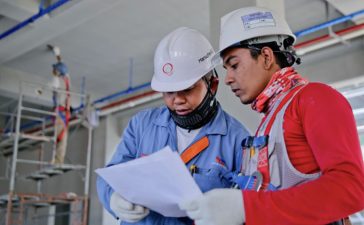Building approvals serve as a critical regulatory process that ensures the safety, compliance, and sustainability of construction projects. They play a vital role in safeguarding public welfare, protecting the environment, and promoting responsible development. This essay explores the significance of building approvals, highlighting their role in maintaining high standards in construction, ensuring adherence to regulations, and fostering a sustainable built environment.
How it can help with safety?
Safety and Structural Integrity, The primary importance of building approvals lies in their role in ensuring the safety and structural integrity of buildings. Through rigorous plan reviews, building authorities assess architectural and engineering designs, verifying compliance with building codes, safety standards, and regulations, and Building Certification. This process helps identify potential hazards, structural weaknesses, or flaws in the construction plans, which, if addressed, prevent accidents, collapses, or other safety-related incidents.
Compliance with Regulations. Building approvals are essential for enforcing compliance with various building codes, zoning ordinances, and regulations. These regulations cover areas such as fire safety, electrical systems, plumbing, accessibility, energy efficiency, and environmental considerations. By obtaining building approvals, developers and builders demonstrate their commitment to following these regulations, promoting responsible construction practices, and minimizing the negative impact on the environment and surrounding communities.
 Environmental Sustainability, In recent years, the importance of sustainable construction practices has gained significant recognition. Building approvals play a crucial role in ensuring that new constructions meet specific sustainability criteria. They assess energy efficiency measures, waste management plans, water conservation strategies, and green building techniques. By integrating sustainable elements into the approval process, building authorities contribute to the reduction of carbon footprints, resource depletion, and environmental degradation caused by the construction industry.
Environmental Sustainability, In recent years, the importance of sustainable construction practices has gained significant recognition. Building approvals play a crucial role in ensuring that new constructions meet specific sustainability criteria. They assess energy efficiency measures, waste management plans, water conservation strategies, and green building techniques. By integrating sustainable elements into the approval process, building authorities contribute to the reduction of carbon footprints, resource depletion, and environmental degradation caused by the construction industry.
Helping the environment at the optimum level
Community and Public Welfare, Building approvals protect the interests of the community by mitigating risks associated with substandard construction. By upholding building codes and regulations, these approvals help prevent unsafe buildings, hazardous materials, and inadequate infrastructure. They also ensure that structures are designed and constructed to withstand natural disasters and other emergencies, protecting the lives and well-being of occupants. Building approvals enhance public confidence in the construction industry, leading to better community development and improved quality of life.
Professional Guidance and Accountability, The process of obtaining building approvals offers valuable professional guidance to developers, architects, engineers, and builders. Authorities provide expert advice, recommendations, and support throughout the approval process, contributing to better project planning, design, and implementation. By holding builders accountable for their actions, building approvals instil a sense of responsibility and ensure that construction projects adhere to the highest standards of quality and safety.
Building approvals play a pivotal role in the construction industry, ensuring safe, compliant, and sustainable development. They promote the safety of structures, compliance with regulations, and the protection of the environment. By integrating sustainable practices, building approvals contribute to the creation of a greener and more resilient built environment. Furthermore, these approvals provide professional guidance and accountability, fostering trust among stakeholders and fostering responsible construction practices. Emphasizing the importance of building approvals is crucial for creating thriving communities that prioritize the well-being of their residents while preserving natural resources for future generations.













